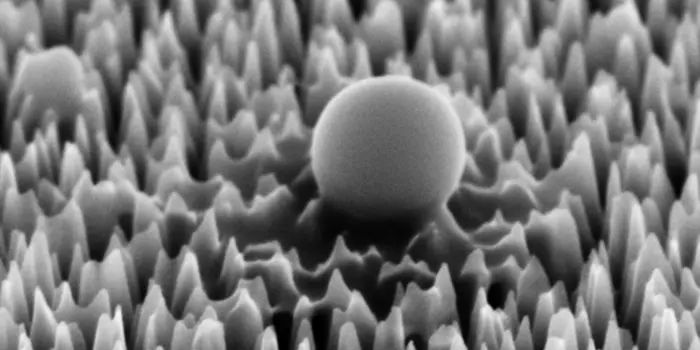Together, a Bacterium & a Probiotic Could Prevent Allergies
Scientists are trying to learn more about why people develop allergies to certain foods. Some research has indicated that the gut microbiome, a vast community of different microorganisms that lives in the gastrointestinal tract, could have a significant influence on allergy development. Certain microbes may foster an inflammatory environment in the intestine that encourages the development of such allergies. A new study has also suggested that a probiotic known as lactulose and a bacterium called A. caccae can promote the release of butyrate, which may help protect against food allergies. The findings have been reported in Cell Host & Microbe.
Other studies have shown that butyrate or butyrate-generating gut microbes can be good for health; it can help bolster the protective gut lining that separates gut microbes and their bioactive compounds from the rest of the body, for example. Butyrate can also have an anti-inflammatory effect. But the body does not make its own butyrate, and relies on gut microbes to produce it.
This work used a mouse model to show that the combination of lactulose and A. caccae raised the levels of butyrate in mouse intestines, and reduced their allergic reactions to cow's milk. These findings may help lead to the development of a therapeutic that could help treat underlying problems in the microbiome that can lead to other health problems like food allergies, the researchers suggested.
"The primary goal of gut microbiota is to digest dietary fiber, which humans don't have the capacity to break down themselves," said senior study author Professor Cathryn Nagler of the University of Chicago. "Instead, humans have co-evolved to rely on bacteria to do this job and to produce key metabolites through fermentation, like butyrate that prevent inflammation and enhance overall gut health."
Previous work from the Nagler lab has shown that A. caccae levels are higher in healthy infants compared to infants with an allergy to cow's milk. The bacterium was also linked to changes in gene expression in cells lining the intestine. A. caccae usually only composes about one percent of the gut microbiome, so these effects are surprising.
Gut microbes grow in environments that lack oxygen or only have very low levels, so they are challenging to work with, but the scientists were able to isolate a sample from human stool, and grow it in the lab.
The invetigators also created a mouse model of cow's milk allergy in mice. They were able to specifically design a gut microbiome using microbes from donated stool from infants with cow's milk allergy. These mice also developed the allergy.
The investigators fed these mice A. caccae and were able to establish it in the mouse microbiome. But there was no measurable butyrate. So they combined the bacteria with a probiotic, after screening dozens to find one that would stimulate butyrate production in A. caccae. Finally, butyrate production began.
Other mice were fed a control that did not contain microbes. The mice that were fed A. caccae along with the probiotic had reduced allergic reactions once they were exposed to cow's milk, compared to the mice that were fed the control diet.
The study authors noted that this work highlights the importance of not only finding the right gut microbes, but also fostering conditions that trigger the desired effect. Now, the researchers are developing preparations that might be tested in humans.
Sources: University of Chicago, Cell Host & Microbe


















































